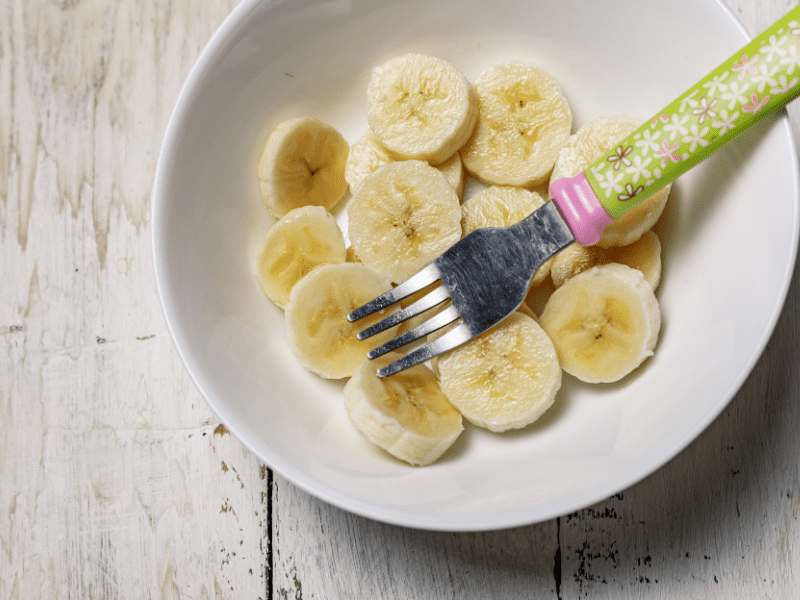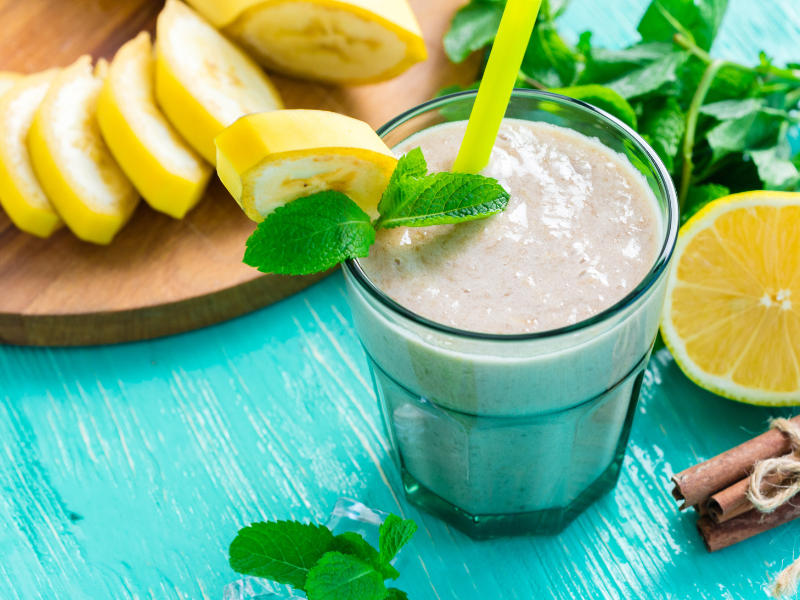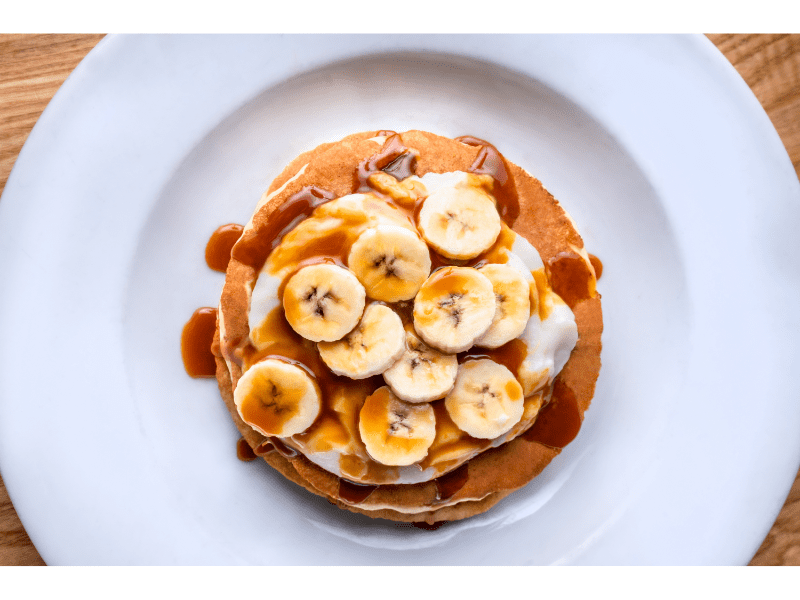Debunking the Myth – are bananas good for you Weight Loss?
Bananas have long been a staple in the world of healthy eating and weight loss. However, there has been some debate about whether or not bananas are actually beneficial for those looking to shed some pounds. In this section, we will debunk the myth and explore the truth behind the claim that bananas are good for weight loss.
When it comes to nutrition, bananas are often praised for their high fiber content and natural sugars. They are also a great source of essential vitamins and minerals, making them a popular choice among health-conscious individuals. But do these qualities really contribute to weight loss?
To truly understand the impact of bananas on weight management, we need to delve into their nutritional profile and how they fit into a balanced diet. By examining the scientific evidence and dispelling common misconceptions, we can determine whether or not bananas deserve their reputation as a weight-loss-friendly fruit.
So join us as we separate fact from fiction and uncover the truth about bananas and their role in achieving sustainable weight loss. Whether you’re a banana enthusiast or simply curious about healthy eating habits, this section will provide you with valuable insights to make informed decisions about incorporating this fruit into your diet.
Table of Contents
The Nutritional Profile of Bananas: Packed with Essential Vitamins and Minerals
Bananas are not only a delicious and convenient snack, but they also offer an impressive nutritional profile. Packed with essential vitamins and minerals, they provide numerous health benefits.
When it comes to vitamins, bananas are particularly rich in vitamin C and vitamin B6. Vitamin C is an antioxidant that helps boost the immune system and aids in collagen production for healthy skin. Vitamin B6 plays a crucial role in brain development and function, as well as the production of red blood cells.

In terms of minerals, bananas are known for their high potassium content. Potassium is an electrolyte that helps regulate blood pressure, maintain proper heart function, and support muscle contractions. Additionally, bananas contain other important minerals such as magnesium and manganese.
Fiber is another key component of bananas’ nutritional profile. A medium-sized banana contains about 3 grams of dietary fiber. Fiber aids in digestion, promotes feelings of fullness, and helps regulate blood sugar levels.
Overall, bananas offer a well-rounded package of essential vitamins (such as vitamin C and B6), vital minerals (including potassium), and dietary fiber. Incorporating this nutritious fruit into your diet can contribute to overall health and wellbeing.
Bananas and Digestive Health: Promoting a Healthy Gut
Bananas have long been recognized for their numerous health benefits, particularly when it comes to digestive health. As a fiber-rich fruit, bananas play a crucial role in promoting a healthy gut.
One of the key benefits of bananas for digestion is their high fiber content. Fiber is essential for maintaining regular bowel movements and preventing constipation. Bananas contain both soluble and insoluble fiber, which helps to bulk up the stool and promote smooth passage through the digestive tract.
Moreover, bananas are easily digestible due to their soft texture and natural enzymes. This makes them an ideal choice for individuals with sensitive stomachs or those recovering from gastrointestinal issues.
In addition to aiding digestion, bananas also contribute to overall gut health improvement. They contain prebiotics, which are non-digestible fibers that serve as food for beneficial gut bacteria. These bacteria help maintain a healthy balance in the gut microbiome, enhancing nutrient absorption and supporting immune function.
Including bananas in your diet can be a simple yet effective way to support your digestive system. Whether enjoyed on their own or incorporated into smoothies, oatmeal, or baked goods, this versatile fruit offers both delicious taste and significant digestive benefits Bananas are indeed a wonderful addition to any diet, especially when it comes to supporting digestive health. They contain dietary fiber, which plays a crucial role in maintaining a healthy digestive system. The fiber found in bananas helps regulate bowel movements and prevents constipation by adding bulk to the stool.
This can be particularly beneficial for those who struggle with irregularity or have issues with their digestion. Moreover, bananas are rich in pectin, a type of soluble fiber that acts as a prebiotic. Prebiotics promote the growth of beneficial bacteria in the gut, which can improve overall gut health and aid in digestion. In addition to their fiber content, bananas also contain enzymes such as amylase and glucosidase that help break down carbohydrates and aid in nutrient absorption. Including bananas in your diet is not only easy but also delicious.
You can enjoy them on their own as a quick snack or incorporate them into various recipes like smoothies, oatmeal, or baked goods for added flavor and nutrition. Remember that while bananas offer great digestive benefits, it’s important to maintain a well-balanced diet with plenty of fruits and vegetables along with other sources of fiber for optimal digestive health..
The Energy Boosting Effect of Bananas: A Natural Powerhouse for Active Individuals
Bananas have long been recognized as a natural powerhouse for active individuals, thanks to their energy-boosting effects. Whether consumed as a pre-workout snack or as a post-workout recovery food, bananas provide numerous benefits that can enhance physical performance and aid in overall fitness.
One of the main reasons why bananas are considered an excellent energy source is their high carbohydrate content. Carbohydrates are the body’s primary source of fuel, and bananas contain a good amount of easily digestible carbohydrates that can be quickly converted into energy. This makes them an ideal choice for individuals who engage in intense physical activities or workouts.
Moreover, bananas are rich in natural sugars such as fructose, glucose, and sucrose. These sugars provide an instant energy boost and help replenish glycogen stores in the muscles after exercise. Consuming a banana before a workout can provide sustained energy throughout the session, while eating one afterwards can aid in muscle recovery by restoring depleted glycogen levels.

In addition to their carbohydrate content, bananas also contain essential nutrients that support overall health and well-being. They are a good source of potassium, which plays a crucial role in maintaining proper muscle function and preventing muscle cramps. Bananas also contain vitamin B6, which helps convert food into energy and supports brain health.
Not only do bananas offer numerous benefits for active individuals, but they are also convenient and easy to incorporate into one’s diet. They come in their own natural packaging and require no preparation or cooking time. Whether eaten on their own or added to smoothies, cereal bowls, or oatmeal, bananas make for a versatile and delicious snack option.
Bananas serve as an excellent natural powerhouse for active individuals seeking an energy boost before or after workouts. Their high carbohydrate content, natural sugars, essential nutrients like potassium and vitamin B6 make them an ideal choice for those looking to optimize their physical performance and enhance post-workout recovery. So next time you’re in need of a quick and nutritious energy source, reach for a banana and experience the benefits it has to offer.
Bananas and Heart Health: Supporting Cardiovascular Function
Bananas are not only a delicious and convenient snack, but they also offer numerous benefits for heart health. One of the key reasons behind this is their high potassium content. Potassium plays a vital role in regulating blood pressure, which is closely linked to cardiovascular function.
Maintaining healthy blood pressure levels is crucial for overall heart health, as high blood pressure can strain the arteries and increase the risk of heart disease. Bananas are an excellent source of potassium, with a medium-sized banana containing approximately 400-450 mg of this essential mineral.
Potassium helps to counterbalance the effects of sodium in the body, which can contribute to elevated blood pressure levels. By promoting vasodilation and reducing tension in the walls of blood vessels, potassium helps to keep blood pressure within a healthy range.
In addition to their potassium content, bananas also contain other nutrients that support heart health. These include dietary fiber, vitamin C, and antioxidants. Fiber aids in maintaining healthy cholesterol levels, while vitamin C and antioxidants help protect against oxidative stress and inflammation – both factors that can contribute to cardiovascular disease.
Incorporating bananas into your diet can be an easy and tasty way to support cardiovascular function. Whether enjoyed on their own or added to smoothies, cereals, or baked goods, bananas offer a natural source of heart-healthy nutrients like potassium that can help maintain optimal blood pressure levels and promote overall heart health That’s absolutely right.Bananas are a fantastic source of heart-healthy nutrients, particularly potassium.
Potassium plays a crucial role in maintaining optimal blood pressure levels, which is essential for overall heart health. Consuming an adequate amount of potassium can help lower the risk of developing high blood pressure and reduce the strain on the cardiovascular system.
Additionally, bananas are also rich in other beneficial nutrients like vitamin C and dietary fiber, making them a great choice for promoting heart health. Whether enjoyed on their own as a quick snack or added to various dishes like smoothies, cereals, or baked goods, bananas offer a convenient and delicious way to incorporate these heart-healthy nutrients into your diet..
Incorporating Bananas into Your Weight Loss Journey: The Role of Portion Control and Balanced Diet

Incorporating bananas into your weight loss journey can be a delicious and nutritious way to reach your goals. When it comes to weight loss, portion control and a balanced diet are key factors to consider.
Bananas are a great addition to any weight loss plan because they are low in calories and high in fiber, which can help you feel fuller for longer. However, it’s important to practice portion control when consuming bananas as part of your diet.
One effective strategy for portion control with bananas is to aim for smaller-sized bananas or cut larger ones in half. This allows you to enjoy the sweetness and nutritional benefits of the fruit while keeping your calorie intake in check.
Additionally, incorporating bananas into a balanced diet is essential for sustainable weight loss. Alongside portion control, it’s important to consume a variety of nutrient-dense foods such as lean proteins, whole grains, vegetables, and healthy fats.
By including bananas as part of a well-rounded meal plan that focuses on portion control and balanced nutrition, you can enjoy their natural sweetness while working towards your weight loss goals. Remember that individual needs may vary, so consulting with a healthcare professional or registered dietitian is always recommended before making significant changes to your diet.
Adding Bananas to Your Diet – a Delicious Way to Enhance Overall Health
In conclusion, adding bananas to your diet can be a delicious and nutritious way to enhance your overall health. Bananas are not only a convenient snack option, but they also offer numerous health benefits.
By incorporating bananas into your daily routine, you can improve your digestive health due to their high fiber content. Additionally, bananas are packed with essential vitamins and minerals such as potassium, vitamin C, and vitamin B6, which contribute to maintaining a healthy immune system and supporting energy production.
Furthermore, there are countless creative ways to enjoy bananas in various recipes. From smoothies and banana bread to desserts like banana ice cream or grilled bananas with honey and cinnamon, the possibilities are endless. Experimenting with different banana recipes can add excitement to your healthy eating habits while satisfying your taste buds.
Remember that moderation is key when it comes to any food item. While bananas offer numerous benefits, it’s important to maintain a balanced diet that includes a variety of fruits and vegetables.
So why not start incorporating more bananas into your diet today? Not only will you enjoy their sweet flavor and versatility in cooking, but you’ll also be nourishing your body with valuable nutrients for optimal health.
Also Read: 19 Best Fruits For Weight Loss : The Power- Packed Delights

